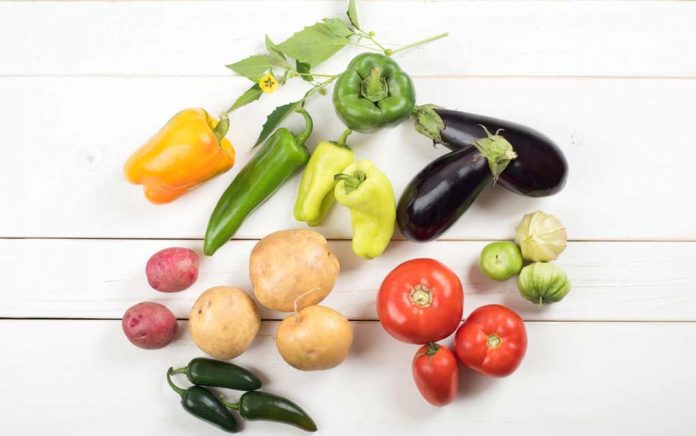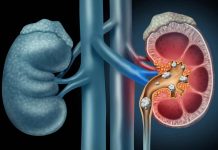
(AscendHealthy.com) – We only eat a handful of the thousands of nightshades available out in nature. The ones we do eat — potatoes, tomatoes, eggplants and peppers — have some serious nutritional value, but they also contain compounds that can increase inflammation. Here’s what you need to know about the nightshades in your diet.
The Good
Specific profiles can vary depending on the specific plant, but the average nightshade is super-high in vitamins and antioxidants. Quercetin, a polyphenol (super-antioxidant) abundant in tomatoes and hot peppers, appears to have anti-inflammatory, anticancer and antiviral properties, for example. Many nightshades are also excellent sources of beta-carotene and vitamin E.
Hot peppers are high in kaempferol, another polyphenol believed to reduce cancer risks. Tomatoes are high in lycopene, which may protect the heart, as well as help prevent cancer. Eggplants are an excellent source of anthocyanin, which can balance the immune system, improve vision and also — you guessed it — reduce cancer risks. The list goes on. Pound for pound, these foods are packed with health-boosting nutrients.
The Bad
Nightshades contain compounds that may contribute to inflammatory symptoms. Lectins, proteins that may serve to protect the plants from invading insects, could contribute to autoimmune issues leading to heart disease, rheumatoid arthritis and inflammatory bowel disease in humans. Healthline reports that some people may have sensitivities due to these and additional defensive chemicals, while other people might find these foods difficult to digest, experiencing gastrointestinal issues after consumption.
Potatoes could cause people unique problems due to their solanine content. This highly toxic compound is at its highest concentrations when a potato is green and/or sprouting. Symptoms of solanine toxicity include nausea and vomiting, abnormally low or high body temperature, diarrhea, depressed pulse, slowed respiration, headache and shock. You cannot cook solanine out of a potato, so it’s important to cut out any sprouts and never to use potatoes that are green beneath the skin.
Rarely, a person has a true nightshade allergy, which puts them at risk of suffering anaphylactic shock in response to exposure. This is a medical emergency. Seek medical help immediately if you experience swelling, hives or difficulty breathing after consuming any kind of nightshade.
A Balanced View
We’re all unique individuals, and our tolerances for the different compounds in nightshades could vary drastically between us. These are highly nutritious foods — but they may adversely affect some people. Keep a food journal, tracking any symptoms that might correlate with the nightshades in your diet, and talk to your doctor if you have any concerns about autoimmune or inflammatory issues that could be related to those foods.
Do you know what nightshades are doing to your body? Only you can make that connection. Pay attention to your body’s signals; there may be a pattern to your symptoms.
~Here’s to Your Healthy Ascension
Copyright 2023, AscendHealthy.com




















